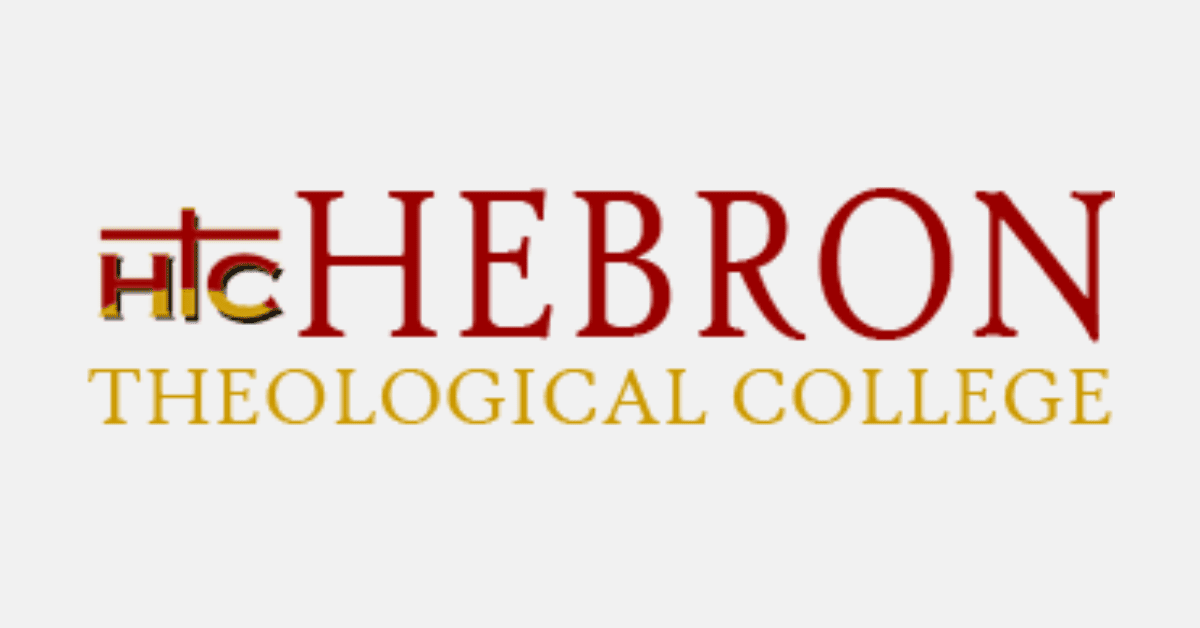Embarking on a journey of theological education is a significant decision, and selecting the right institution is essential. Hebron Theological College (HTC), situated in Benoni, Gauteng, South Africa, offers a robust platform for individuals aspiring to deepen their understanding of Christian ministry. This article provides an in-depth exploration of HTC’s online application process, courses, admission requirements, and the unique opportunities it presents to prospective students.
About Hebron Theological College
Established in 1981 by Dr. and Mrs. Fawcett, Hebron Theological College has grown into a respected institution dedicated to training Christian leaders. The college’s mission is to deliver high-quality, God-glorifying, Christ-focused, and Holy Spirit-anointed theological education. HTC emphasises Bible-integrated teaching based on the authority of God’s Word, aiming to build up the Church and equip individuals for effective ministry.
Courses Offered
HTC offers accredited programs designed to equip students with practical skills and theological knowledge. The primary qualifications include:
- Occupational Certificate: Christian Religious Practitioner (NQF Level 2): This qualification is tailored for individuals seeking foundational training in Christian ministry. It encompasses modules such as Bible interpretation, basic Christian concepts, worship services, preaching, and pastoral care. Notably, there are no formal educational prerequisites for this program, making it accessible to a broad audience.
- Occupational Certificate: Christian Religious Professional (NQF Level 5): Aimed at those pursuing advanced ministerial roles, this qualification delves deeper into theological studies and practical ministry skills. It prepares students for leadership positions within Christian communities.
Study Models
Understanding the diverse needs of its students, HTC offers flexible study models:
- Contact Sessions: Held at various learning centres, these sessions provide face-to-face interaction with facilitators and peers. Students attend training at specific venues, preferably near their residences.
- Online Learning: Leveraging a well-developed Learner Management System (LMS), HTC facilitates online training. Virtual classes are conducted via platforms like Zoom, requiring students to have a stable internet connection and appropriate devices.
- Blended Learning: This approach combines contact sessions and online learning, offering flexibility to accommodate individual circumstances.
Admission Requirements
Prospective students must meet specific criteria to enrol in HTC’s programs:
- NQF Level 2: No formal educational qualifications are required, making it accessible to individuals from various educational backgrounds.
- NQF Level 5: Applicants should possess an NQF Level 4 qualification with English communication proficiency. For foreign nationals, additional documentation such as a valid passport, visa, and SAQA evaluation certificate is necessary.
Application Procedure
Applying to HTC involves a structured process:
- Obtain the Application Form: Visit HTC’s official website to download the application form.
- Complete the Form: Fill in all required details accurately.
- Prepare Supporting Documents: Gather necessary documents, including certified copies of identification, educational certificates, and proof of payment for the application fee.
- Submit the Application: Send the completed form and supporting documents to HTC via the specified channels.
- Await Confirmation: After processing, HTC will communicate the outcome and provide further instructions.
Application Fees
A non-refundable application fee is required to initiate the process:
- Application Fee: R200.00
- Registration Fee: R500.00
Applicants should ensure timely payment to avoid delays.
Recognition of Prior Learning (RPL)
HTC acknowledges the value of prior learning and experience:
- Definition: RPL is a process where candidates with informal, non-formal, or experiential learning can be assessed and recognised for their competencies.
- Required Documents: Applicants must submit a completed RPL application form, certified identification, and a comprehensive portfolio of evidence demonstrating their prior learning and experience.
Student Support
HTC is committed to providing robust support to its students:
- Induction Sessions: New students participate in induction sessions to familiarise themselves with the college’s systems and expectations.
- Ongoing Assistance: Support is available through various channels, including telephone, email, and online platforms, ensuring students have the resources needed for success.
Conclusion
Hebron Theological College stands as a beacon for those seeking comprehensive theological education. With its accredited programs, flexible study models, and commitment to quality, HTC offers a conducive environment for spiritual and academic growth. Prospective students are encouraged to explore the opportunities available and embark on a transformative journey in Christian ministry.
For more detailed information and to begin your application, visit HTC’s official website: hebroncollege.co.za

